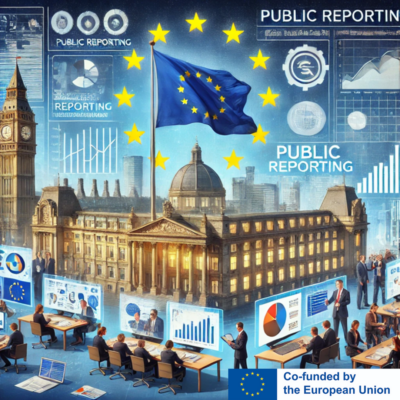In the European Union (EU), transparency and accountability are considered fundamental pillars of both civic engagement and business operations. As the EU continues to promote higher standards of governance, public reporting has emerged as one of the key values driving both civic responsibility and corporate behavior. Public reporting, which encompasses financial disclosure, sustainability reporting, and corporate governance, serves as a vital mechanism to ensure that organizations are operating in a transparent and accountable manner. This article delves into the importance of public reporting within the context of the EU’s civic and business values.
Public reporting is a practice that extends beyond the realm of compliance; it is an ethical obligation that promotes openness and trust between organizations and their stakeholders. Within the EU, there are several regulations, directives, and policies that enforce public reporting, such as the EU Accounting Directive and the Non-Financial Reporting Directive (NFRD). These regulations require businesses to disclose key financial and non-financial information that provides insights into their economic performance, environmental impact, and governance practices.
At the heart of the European Union’s mission is the promotion of democratic values, including transparency in both the public and private sectors. Transparency serves as a safeguard against corruption and fosters public trust in governmental and corporate institutions. By embracing public reporting, governments and businesses demonstrate their dedication to maintaining a transparent and open society. Public reporting in civic spheres involves providing citizens with clear, accessible, and accurate information about government activities, public spending, and decision-making processes.
The EU has long recognized the role that transparency plays in strengthening democratic governance. Through initiatives such as open data portals and public access to information laws, the EU encourages public institutions to actively disclose data, empowering citizens to hold their governments accountable. In turn, this fosters a culture of civic engagement, where citizens are informed participants in shaping public policy.
In the business world, transparency is not merely a regulatory requirement but a strategic imperative. EU businesses are increasingly aware that public reporting is critical for building trust with shareholders, employees, customers, and the broader community. In particular, the rise of environmental, social, and governance (ESG) reporting has become a central focus for many companies, as stakeholders demand greater clarity regarding a company’s impact on society and the environment.
The EU’s Corporate Sustainability Reporting Directive (CSRD) is a recent legislative initiative that reflects the growing importance of sustainability reporting. Under the CSRD, companies must not only report their financial performance but also provide detailed information on how their operations affect environmental and social factors.
Public reporting also encourages businesses to adopt more responsible practices. For example, businesses that are required to disclose their environmental impact are incentivized to minimize negative consequences and adopt more sustainable operations. Similarly, businesses that report on their diversity and inclusion practices are more likely to implement policies that promote equality and prevent discrimination.
Public reporting serves as a bridge between organizations and their stakeholders, fostering accountability and trust. In the EU, trust is a cornerstone of both civic society and business success. By publicly disclosing relevant information, organizations demonstrate their willingness to be accountable for their actions. This is particularly important in the context of corporate scandals, where lack of transparency often leads to a breakdown of trust between businesses and the public.
In conclusion, public reporting is not just a regulatory obligation but a core value that reflects the European Union’s commitment to transparency, accountability, and ethical governance. In both civic and business contexts, public reporting plays a crucial role in fostering trust, promoting responsible behavior, and ensuring that organizations operate with integrity. As the EU continues to raise the bar for public reporting standards, both governments and businesses must prioritize transparency to maintain the trust of their stakeholders and contribute to a more open, accountable, and sustainable society.
The publication is prepared within the Jean Monnet module “EU Experiences for Enhancing Youth Employability through Professional Skills Development”, funded by the Erasmus+ program (ERASMUS – JMO -2021-MODULE -SKILLS4JOB-101047867)
Funded by the European Union. Views and opinions expressed are however those of the author(s) only and do not necessarily reflect those of the European Union or the European Education and Culture Executive Agency (EACEA). Neither the European Union nor EACEA can be held responsible for them.
